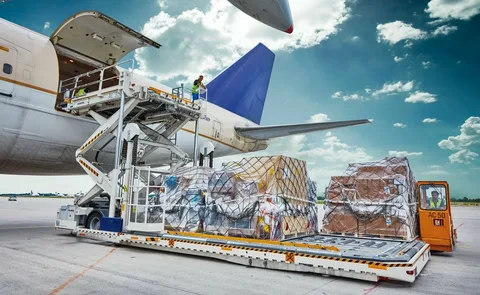In the world of global logistics, time, safety, and precision are paramount—especially when dealing with heavy and outsize cargo. Whether transporting industrial machinery, power plant components, construction equipment, or aerospace parts, standard freight solutions often fall short. The complexity and urgency involved in such operations demand a tailored approach—one that offers flexibility, route optimization, and full control over transit schedules. That’s where cargo charter services emerge as a powerful alternative.
This article explores how these services offer unmatched efficiency when moving non-standard freight, and why industries across sectors are turning to specialized air transport solutions for heavy and oversized loads.
The Challenges of Heavy and Outsize Freight
Shipping heavy or unusually large cargo poses a unique set of challenges. Conventional commercial carriers are limited by cargo hold dimensions, weight restrictions, and fixed routes. Handling requirements for these shipments—ranging from reinforced loading ramps to specialized slings or cranes—further complicate the logistics.
Additionally, outsize cargo often needs to reach remote destinations or transit across international borders, where infrastructure might not support large-scale ground transport. Road restrictions, port backlogs, and unpredictable customs processing times only increase the risk of costly delays.
This is especially critical for industries such as energy, aerospace, defense, and construction, where project timelines and asset availability directly impact profitability and safety.
Why Cargo Charter Services Are Ideal for Heavy Loads
Cargo charter services provide a purpose-built solution for these specialized logistics needs. Unlike scheduled freight, a chartered aircraft operates on your timeline, with your cargo specifications in mind. Here’s how this translates into efficiency:
1. Custom Aircraft Matching
Charter providers assess the size, weight, and nature of the cargo before recommending a suitable aircraft—from turboprops and narrow-body jets to large freighters with rear-loading ramps. This ensures optimal use of space and structural capacity, minimizing handling risk.
2. Route Flexibility
Cargo charters are not bound by fixed flight schedules or hub-and-spoke networks. They offer point-to-point routes, which reduce transit times and eliminate unnecessary layovers. This flexibility is invaluable for time-sensitive shipments or deliveries to remote or underdeveloped areas.
3. Special Handling and Load Support
Loading outsize cargo often involves more than a forklift and a few pallets. Aircraft used for chartered cargo operations are equipped for complex loading scenarios, including nose- or tail-loading options, cranes, and specially designed dollies. Logistics experts also coordinate ground support at departure and arrival airports to ensure seamless loading and unloading.
4. Onboard Security and Real-Time Monitoring
Heavy and outsize shipments are often high in value or mission-critical in function. Charter flights allow for onboard couriers, sealed cargo areas, and GPS tracking systems—ensuring that clients maintain real-time visibility and peace of mind throughout the journey.
Efficiency Beyond Speed: Project Continuity and Cost Avoidance
While speed is an obvious advantage of cargo charter services, the broader business value lies in how they support operational continuity and risk management. In construction or manufacturing, a single missing component can bring entire projects to a halt. Waiting for delayed shipments or navigating bureaucratic bottlenecks in traditional freight systems can cause severe financial losses.
Charter flights offer a controlled environment where time, security, and specialized logistics align—helping businesses stay on schedule, avoid penalties, and meet contractual obligations.
Real-World Applications Across Industries
The use cases for chartering air cargo are as diverse as the industries they serve:
- Energy Sector: Transporting turbine blades, drilling rigs, or pipeline components to remote oil fields or wind farms.
- Mining and Construction: Delivering excavators, mobile crushers, and prefabricated structures to inaccessible project sites.
- Aerospace: Shipping fuselage parts, engines, and testing equipment for aircraft assembly or satellite deployment.
- Defense and Security: Moving armored vehicles, radar systems, or support equipment under strict confidentiality.
- Automotive: Expedited delivery of prototype components or assembly robots to meet production deadlines.
Each scenario shares a common need: precision logistics with the capability to move the extraordinary.
Integrated Logistics: The Hidden Advantage
Beyond flight operations, cargo charter providers often coordinate the end-to-end process—from load engineering and packaging to customs documentation and ground transfer. This integrated service model ensures that complex shipments don’t just take off on time—they land ready for immediate deployment.
For shipments involving sensitive or humanitarian goods, speed and coordination can make all the difference. Just as cargo flights move critical machinery, they also support urgent medical transport—reminding us of the broader humanitarian value of aviation logistics. To see this perspective in action, one can explore the Life-Saving Power of Air Ambulances and how aviation saves lives beyond the cargo hold.
Conclusion
In today’s fast-paced global economy, businesses can’t afford logistical uncertainty—especially when moving heavy, oversized, or mission-critical freight. Cargo charter services offer a strategic solution that combines flexibility, speed, security, and customization. Whether navigating tight deadlines, delivering to remote sites, or transporting high-value assets, chartered cargo flights empower industries to maintain momentum without compromise.
As industries continue to push the boundaries of what’s possible—both in scale and location—specialized cargo logistics will remain an essential pillar of efficiency and success. When the stakes are high and the cargo is heavy, the skies may just be the smartest route forward.










Leave a Reply